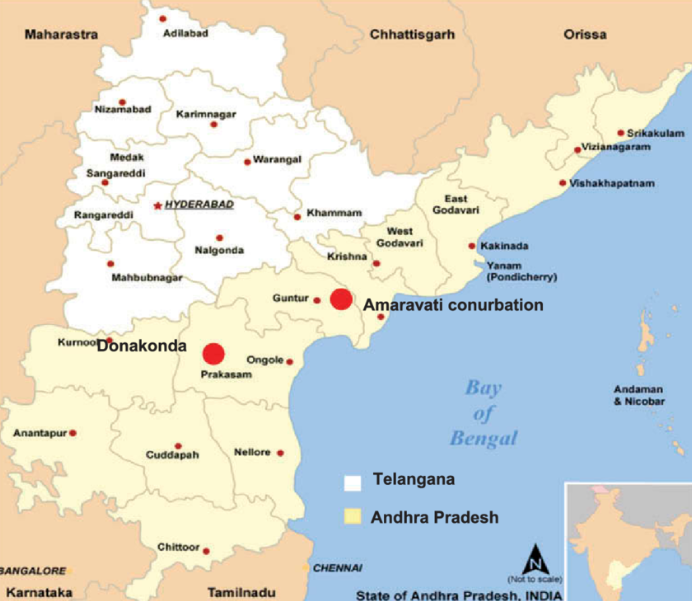Andhra Pradesh bifurcation (GS Paper 2, Polity)

Context
- The article discusses the political, economic, and historical implications of the division of Andhra Pradesh into Andhra Pradesh and Telangana.
- It examines the lack of nostalgia for the unified state, questions the sustainability of linguistic state organization, and highlights the potential future challenges for India’s federal structure.
Scant Nostalgia:
- The article highlights the absence of significant nostalgia for the unified state of Andhra Pradesh after its bifurcation into Andhra Pradesh and Telangana.
- Despite the prolonged political disputes preceding the division, both states have moved forward independently, with minimal sentimental attachment to their former unity.
- This lack of nostalgia signifies a shift in regional identities and priorities, reflecting the evolving socio-political landscape in the aftermath of the partition.
Historical Context:
- Examining the historical context of Andhra Pradesh and Telangana, the article traces their shared history under Golconda and Hyderabad's rule before their eventual division.
- Unlike other linguistic regions like Kannada and Marathi-speaking areas, which remained integrated within Karnataka and Maharashtra, respectively, Andhra Pradesh and Telangana lacked a strong sense of unity, contributing to their separation in 2014.
Linguistic Unity and Future Prospects:
- The division of the Telugu-speaking regions raises questions about the efficacy of linguistic unity as an organizing principle for state cohesion.
- Economic disparities, linguistic differences, and political culture discrepancies across linguistic regions necessitate a reevaluation of India's organizing principles beyond language to address emerging fault lines effectively.
Impact on Political Clout:
- The bifurcation altered the political landscape by reducing Andhra Pradesh's Lok Sabha seats from 42 to 25, diminishing its political influence compared to other states.
- Similarly, Telangana's 17 seats place it lower in political significance than states like Kerala. Such disparities in political clout among states can lead to imbalances in resource distribution and potential friction within the federal structure.
Political and Economic Consequences:
- The article highlights the political and economic repercussions of the bifurcation, including altered political equations and potential strains on the federal structure.
- Unequal distribution of political power and economic resources may foster disenchantment and alienation among states, necessitating proactive measures to address grievances and maintain national cohesion.
Future Challenges:
- Anticipated challenges include addressing grievances stemming from the bifurcation process, fulfilling unmet promises, and navigating the financial strains faced by Andhra Pradesh.
- As initial euphoria fades, Telangana may confront underlying issues, while Andhra Pradesh grapples with balancing infrastructure projects and welfare programs amidst financial constraints.
Organizing Principles and National Unity:
- The hasty departure from linguistic reorganization principles during Andhra Pradesh's bifurcation raises broader questions about Indian states' organizing principles and national unity.
- A thorough examination of the bifurcation process is necessary to ensure a stable foundation for the Indian Republic and address potential challenges arising from future political reconfigurations.
Conclusion:
- In conclusion, the Andhra Pradesh bifurcation underscores the complexities of Indian polity and the federal structure.
- Thoughtful consideration of organizing principles and proactive measures to address political and economic disparities are essential to safeguard national unity and stability.
- Future political reconfigurations must be approached with foresight and sensitivity to uphold the long-term integrity of the nation.


